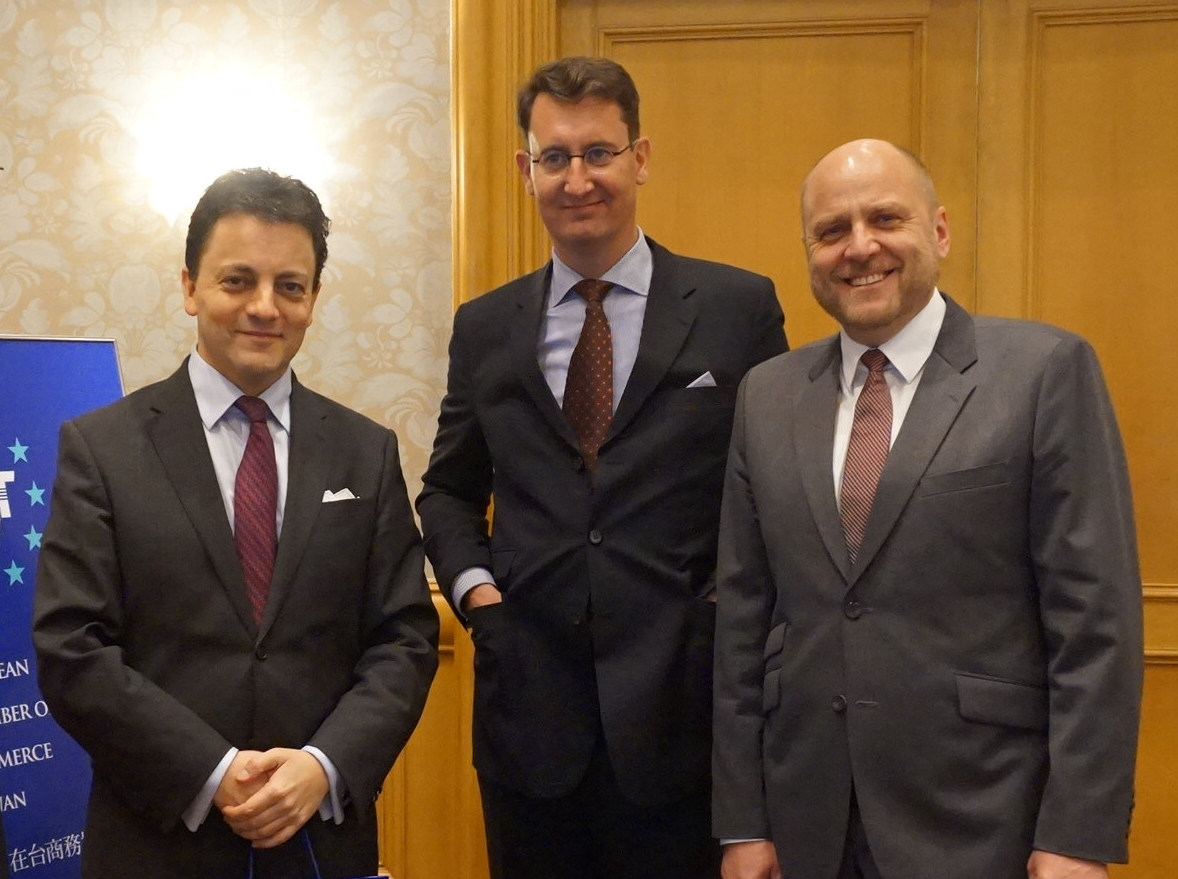Global economic outlook from Commerzbank

The speaker focused on the outlook for developed versus developing or emerging markets (EM). (He stated at the outset that he regards Taiwan and South Korea as developed markets).
According to Evans' analysis, Asia is doing relatively well overall. This is reflected in market perceptions of risk and the relative resilience of Asian currencies. Taking Brazil as an example of how things have changed, in 2003 Brazil's five year credit default swap (CDS) spread was close to 4,000 basis points (bps or 40 percentage points) higher than developed markets while Turkey's was around 1,400 bps and Russia's was around 500 bps. Since the election of Brazilian President Lula, the spread dropped sharply not only for Brazil but other developing countries. With the exception of the period around the global financial crisis, the spreads have remained consistently around 250 bps. The situation is similar in other EMs such as The Philippines. This can partly be attributed to the fact that EMs such as The Philippines and Turkey have very low levels of foreign debt and generally better fiscal dynamics. EM interest and government bond service rates are now very similar to countries like Italy and Spain.
Global government debt has expanded to over US$45 trillion over the past 20 years and most of it has been accumulated by developed countries. Most EM countries have relatively low budget deficits and accumulated debt burdens. Only about 20% of the debt has been accrued by EM countries. Coupled with economic growth, this places EMs in a good position to grow when interest rates begin to rise. The public sector will not crowd out the private sector.
Income inequality is a serious concern in certain EMs such as South Africa, which has the highest level of income inequality and the highest level of youth unemployment among the BRICS countries. Given low growth, this poses serious challenges for the South African government.
Emerging markets are now much more significant to the global economy than they were just a decade ago. In 2000, EMs accounted for just 20% of global GDP. Now they account for 40% (and as high as 50% on a purchasing power parity basis). Most of the growth in the past 14 years has been driven by China, whose share of nominal global GDP has risen from just 6% in 2007 to 13% in 2014. However, the US and Europe together still account for 40% of global GDP.
On currencies, the euro has seen much sharper depreciation than Asian currencies over the past 12 months. Evans expects US dollar/euro parity by the end of 2015 (or before). While the European Central Bank has embarked on an aggressive quantitative easing campaign, to date there has not been enough bond supply. He does not expect the situation to change much as Eurozone bond holders are likely to hold on to their bonds.
On the Chinese Yuan, he noted that the Peoples Bank of China (PBOC) has become much more transparent recently, indicating that it is preparing the ground for more liberalisation. Evans said he expects the PBOC to cut rates by around 50 basis points, which would weaken the currency further versus the US dollar.
He noted that the US economy is still largely driven by internal factors (he said that the US's export to GDP ratio is only 10%). The shale oil and gas revolution has made the US much less dependent on oil imports. This means the US economy is relatively insulated from global external shocks. For this reason, he believes that US authorities are not overly concerned about an appreciating dollar. However, according to Evans, there is still insufficient investment in the US (beyond the shale oil and gas industry) and more capital investment is needed to boost GDP. The same also goes for other countries. He made the point that in countries where capital expenditure has continued to be high in recent years, we can expect good growth in the years ahead. He said that corporations the world over are holding on to too much cash and that they need to start investing again to boost their respective economies. The situation in the US is in contrast to countries like Germany which is dependent on exports. A weak euro is of course a boon to European exporters.
Commenting on China, Evans said that the world has got used to the idea of slower growth in China and a slower China is not a real concern. (Commerzbank forecasts 6.5% growth in 2015 and 2016). A factor many people have neglected is that China does not need such high growth because of changing demographics. Only modest growth is needed when the population is no longer rising fast and given large capital investments in recent years.
Looking ahead, Evans expects the trend of a rising dollar to continue until the US Federal Reserve raises interest rates (which he predicts will happen in September 2015).
